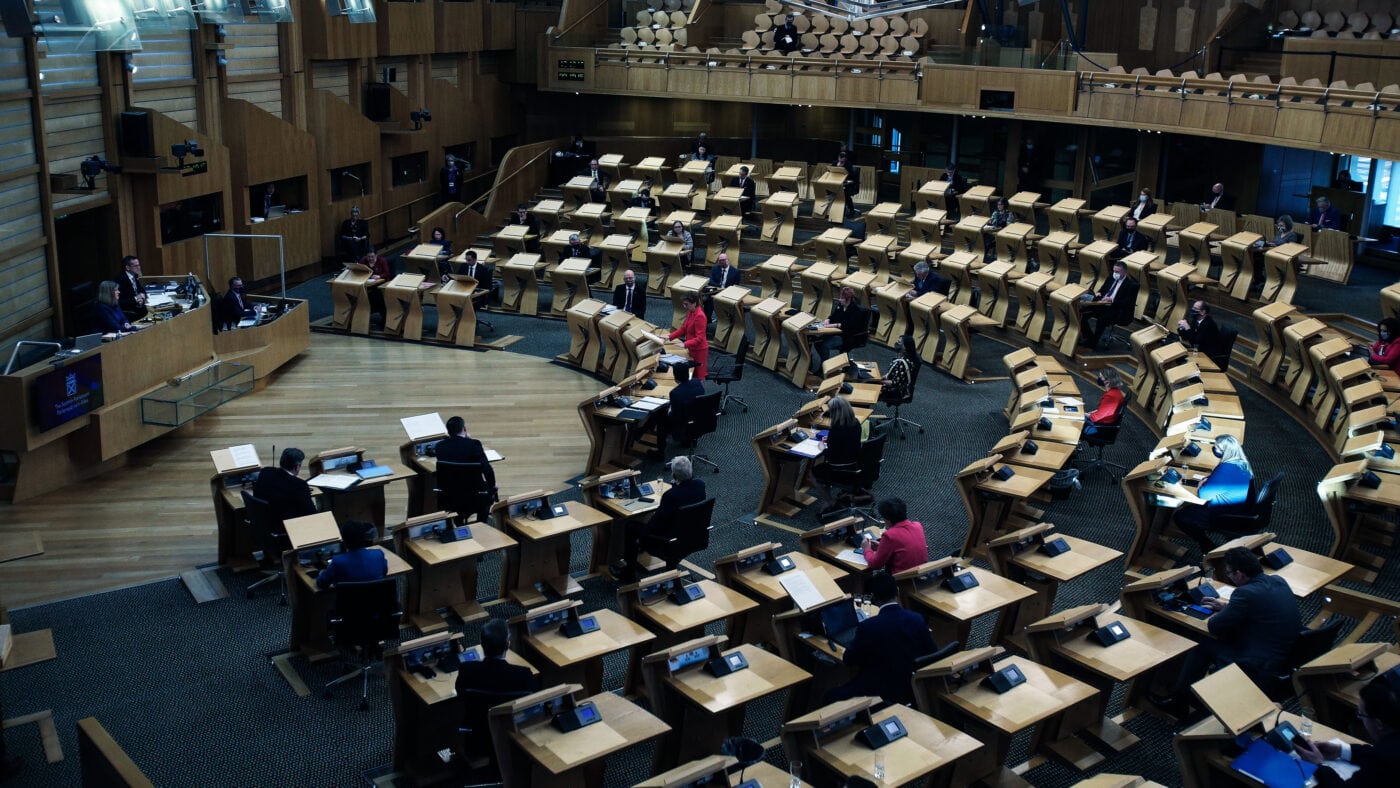Now that the heady sense of liberation following Nicola Sturgeon’s announcement of her resignation has begun to die down, it is time to think of the real, underlying problem of her tenure. The real issue was not her own political personality, so much as the way the Scottish Parliament was set up. Now the former has gone, the latter requires urgent attention – not least because it was the gerrymandered electoral system which enabled her rise to power.
The blame for this lies with New Labour, and in particular with Donald Dewar, the first Secretary of State for Scotland under Tony Blair. It was Dewar who devised the voting system that has distorted democracy in Scotland since 1999. It is imperative that Dewar’s constitutional legacy be undone, and a genuinely democratic system be devised to replace it.
In my biography of Nicola Sturgeon, I have for convenience referred to the existing arrangements as the ‘Dewar Constitution’. Its aim was to empower government at the expense of opposition. That was how Glasgow worked in the bad old days of Labour dominance and corruption, and it’s how Holyrood has operated, both under Labour and the SNP.
Consider, for example, the layout of the debating chamber. The seating arrangements have encouraged parliamentary passivity rather than vigorous government-opposition debate. With the other parties split on either side of him or her, the First Minister addresses the wall in front, not the opposition. Lord Fraser’s report into the Holyrood building debacle included this telling statement by the widow and professional partner of the architect, Enric Miralles:
The proposals agreed by Donald Dewar… had developed to be more akin to lecture room seating. This was in order to avoid the confrontational seating arrangements of the Westminster Parliament. Sra Tagliabue [Miralles’s widow] described the design of the Chamber thus: ‘I think it was also a way to… provide a totally different Parliament from the Westminster one. I think it was very much appreciated, because it was really the opposite of the Westminster way of debating.’
The root of Holyrood’s problem has been the extreme difficulty of holding the executive to account. Dewar’s concept had much in common with the European Parliament, which cannot hold the European Commission to account any more than the Russian Duma can the Kremlin.
‘Lecture room seating’ was precisely what Sturgeon needed since she seemed more at home informing passive listeners than debating with active equals. But without dialogue there can be no informed democracy.
The Dewar Constitution also encouraged passivity on the part of the electorate, due to the arcane system of voting which few understand. There are 129 members of the Scottish parliament (MSPs), 73 of whom are elected by voters. The other 56 are ‘list’ seats, so called because their occupants are chosen from party lists, which are controlled by political managers.
‘List’ MSPs represent one or other of 8 ‘super-seats’ which are based on the old European Parliament electoral boundaries. Each has nearly 500,000 voters, who elect seven members per region. Ask any Scot who their ‘list’ MSPs are and few will be able to name more than one.
The ignorance is mutual. ‘List’ MSPs do not seem to bother with their constituents. How can they when there are so many? It is rare to get an answer to a political query from any of them. Constituency surgeries are a thing of the past. Not only are they incapable of representing so many people, but they appear unwilling to try.
Worse still, the voter cannot even choose between the various names which each party puts forward on its list. Unlike many systems of proportional representation, in Scotland Dewar gave us what is called a ‘closed list’. You may not vote for a person, only for a party. In my book I call these ‘bureaucratic’ seats to distinguish them from the 73 ‘democratic’ seats, in which individual citizens elect individual people to represent them at the centre of power.
The original justification for this was to encourage ‘consensus’ by compensating losing parties with a sniff of the political spoils. But in reality it is gerrymandering. That is why we have eight Green MSPs, not one of whom was elected by ordinary voters in an individual constituency. That is gaming the system.
After the 2021 elections, Sturgeon made a coalition with the Greens so she could say she had a parliamentary majority for independence. That is why two Green MSPs are members of the Scottish Cabinet. The result has been the Gender Recognition Reform Bill, which offended almost the entire electorate. Democracy in action? I don’t think so.
Whatever other reactions there may be to the First Minister’s resignation last week, by far the most important ones should be those which prepare the ground for serious reform of the Dewar Constitution. He was tasked with ending the democratic deficit in Scotland. Unfortunately his way of doing that has created an even more damaging deficit today.
Click here to subscribe to our daily briefing – the best pieces from CapX and across the web.
CapX depends on the generosity of its readers. If you value what we do, please consider making a donation.


